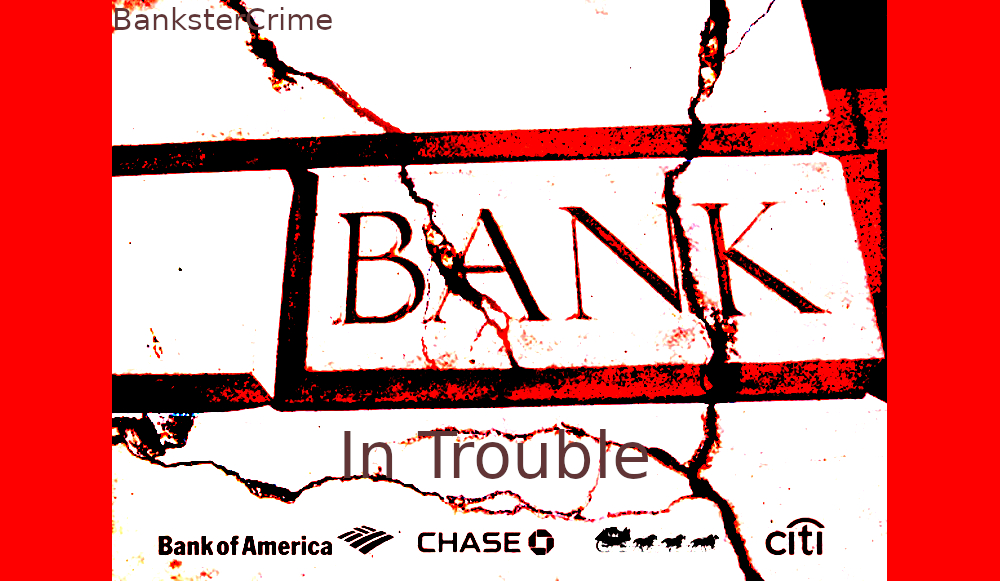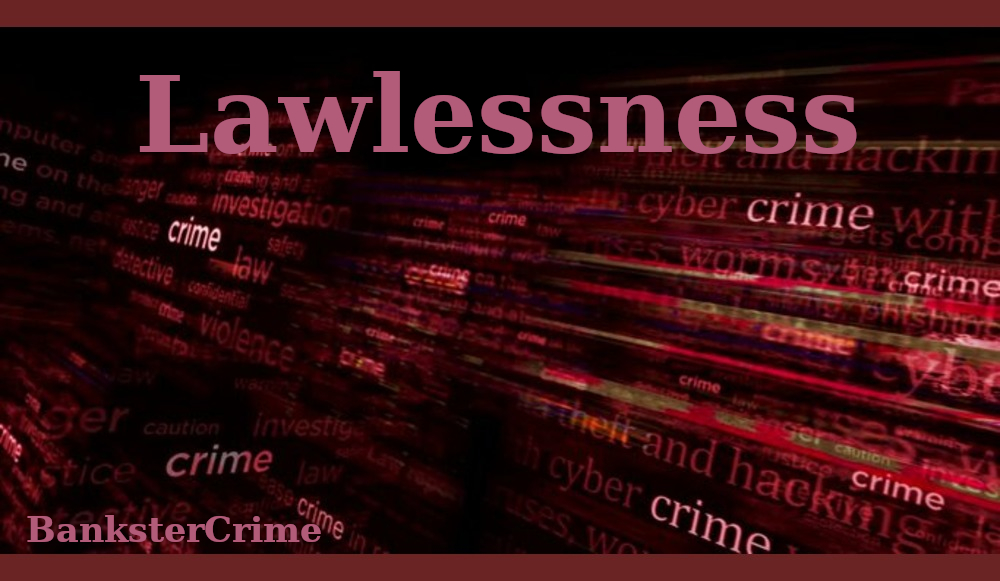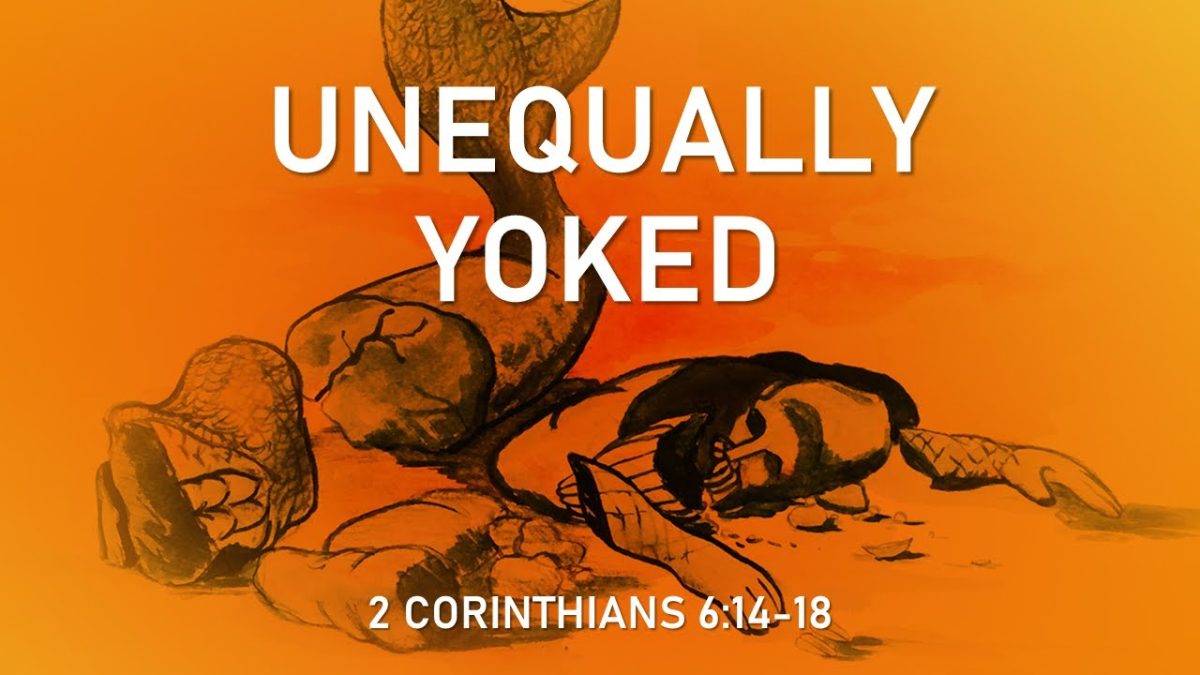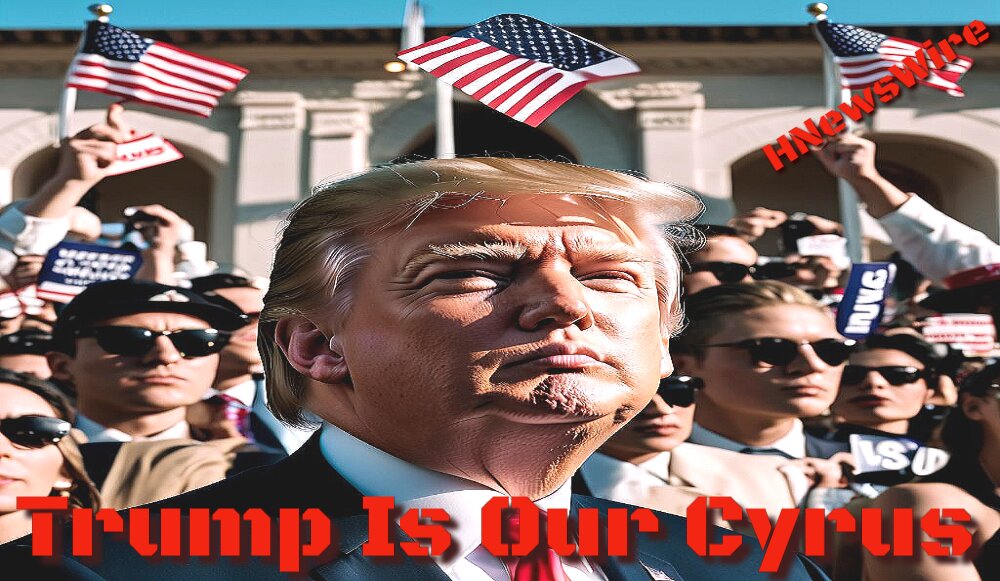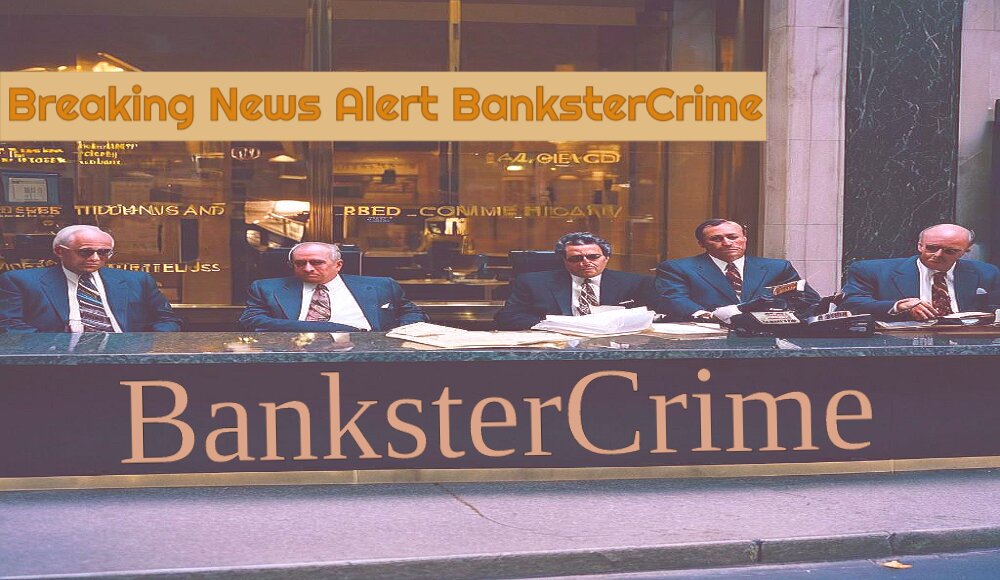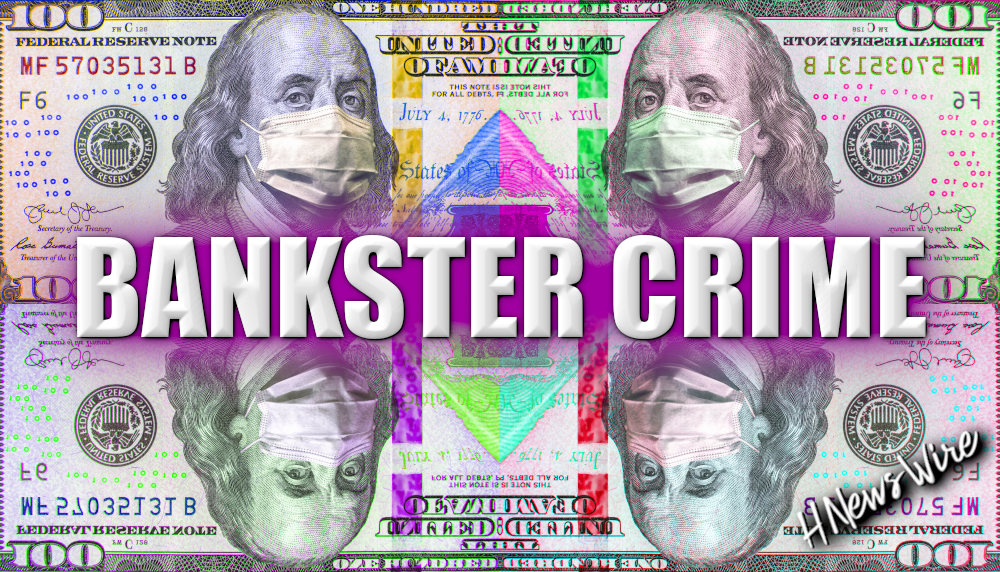Jamie Dimon to Testify at Senate Banking Hearing; Don’t Expect His Bank’s Financing of Sex Trafficking or 5 Felony Counts to Come Up
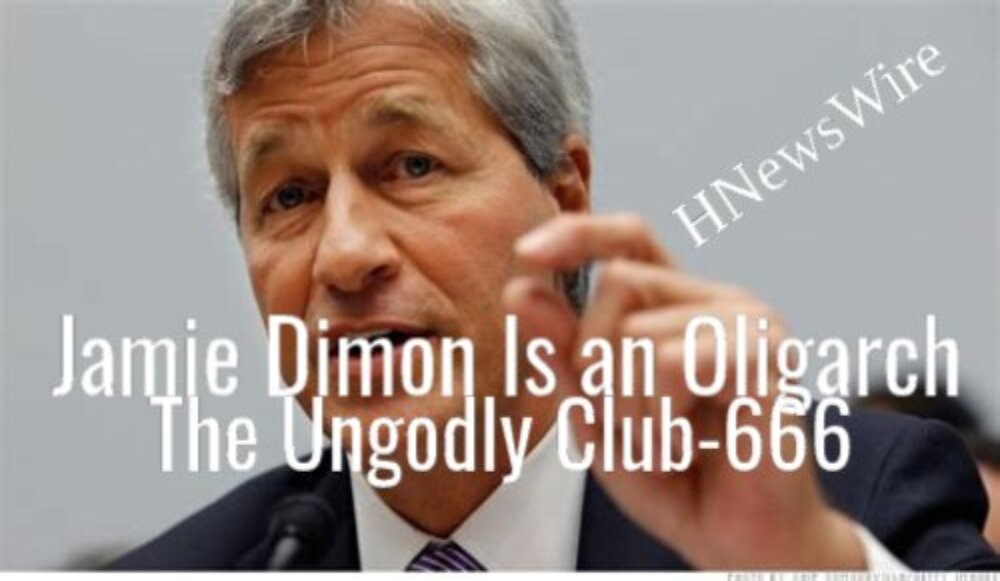
BanksterCrime:
By Pam Martens and Russ Martens:
Tomorrow at 9:30 a.m., the CEOs of the eight mega banks on Wall Street will take their seats at a hearing called by the Senate Banking Committee as part of its annual nod to the pretense that it is providing oversight of these inscrutable Frankenbanks.
Among the gang of eight will be Jamie Dimon, Chairman and CEO of JPMorgan Chase, the largest bank in the United States with a rap sheet that makes a mockery of U.S. rules for maintaining the safety and soundness of banks.
JPMorgan Chase is an enigma wrapped in the surreal details of five felony counts, shrouded in the deepening intrigue of why crime boss Jamie Dimon is allowed to remain at the helm of this federally-insured bank despite his presiding over the worst banking scandals in U.S. history.
The scandals at this bank have evolved from facilitating brazen frauds like propping up Bernie Madoff’s Ponzi scheme (the bank admitted to two Madoff-related felony counts in 2014) to a cleverly named foreign bribery program called “Sons and Daughters” where the unqualified children of Chinese officials’ were given jobs at the bank in exchange for business deals. That violation of the Foreign Corrupt Practices Act resulted in a non-prosecution agreement conveniently hatched up by Big Law firm Paul Weiss and a miniscule fine of $72 million.
A former inside attorney later charged in a Federal lawsuit that the bank was violating the non-prosecution agreement in the Sons and Daughters matter by keeping two sets of books to disguise payments to politically-connected people. The bank quietly settled that lawsuit before it could go to trial.
When Senator Carl Levin was alive and chaired the U.S. Senate’s Permanent Subcommittee on Investigations, JPMorgan Chase’s travesties against the American people were taken far more seriously than the yawns they elicit in the halls of Congress today. Consider how Levin handled JPMorgan’s “London Whale” scandal in the spring of 2012:
In April 2012, the Wall Street Journal and Bloomberg News published articles alerting the public to the existence of massive derivative bets that JPMorgan Chase was making through its Chief Investment Office. The bets were so large that they were distorting the market and getting outcries from hedge funds who blew the whistle to the newspapers’ reporters.
The Dodd Frank financial reform legislation of 2010 was just two years old at that point and was supposed to have reined in these kinds of wild derivative abuses at the Wall Street banks. (Derivatives had played a major role in crashing Wall Street and the U.S. economy in 2008.)
Levin’s Subcommittee got immediately to work on an in-depth investigation of what JPMorgan Chase was doing with its derivative bets in London. That investigation spanned nine months. The Subcommittee collected 90,000 documents; reviewed over 200 recorded telephone conversations and instant messaging exchanges; and conducted over 25 interviews of bank and regulatory agency personnel. The Subcommittee also received more than 25 briefings from the bank and its federal regulators, including the Office of the Comptroller of the Currency (OCC) and Federal Deposit Insurance Corporation (FDIC).
Armed with the facts, Levin’s Subcommittee released a 300-page report on March 15, 2013 and called key participants to the scheme before a hearing on the same date. The bombshell finding was that the bank had used deposits from its federally-insured bank to make reckless derivative bets on its London trading desk and lose $6.2 billion of depositors’ money. In the process, said Levin, the bank had “piled on risk, hid losses, disregarded risk limits, manipulated risk models, dodged oversight, and misinformed the public.”
The late Senator John McCain, ranking minority member of the Subcommittee at the time, said this about JPMorgan Chase’s actions:
“These losses came to light not because of admirable risk management strategies at JPMorgan or because of effective oversight by diligent regulators. Instead, these losses came to light because they were so damaging that they shook the market, and so damning that they caught the attention of the press. Following the revelation that these huge trades were coming from JPMorgan’s London Office, the bank’s losses continued to grow. By the end of the year, the total losses stood at a staggering $6.2 billion dollars. This case represents another shameful demonstration of a bank engaged in wildly risky behavior. The ‘London Whale’ incident matters to the federal government because the traders at JPMorgan were making risky bets using excess deposits, portions of which were federally insured.
“These excess deposits should have been used to provide loans for main-street businesses. Instead, JPMorgan used the money to bet on catastrophic risk. Through an extensive bipartisan investigation, this Subcommittee has uncovered a wealth of new information. Internal e-mails, memos, and interviews reveal that these trades were not conducted by a group of rogue traders, but that their superiors were well aware of their activities.”
Shortly after the London Whale scandal broke, Dimon was quoted in the press as calling the matter a “tempest in a teapot.” Levin’s 300-page report made clear that this was far from a tempest in a teapot. The FBI opened a criminal investigation but, ultimately, no criminal charges were brought against the bank. The bank paid more than $1 billion in related fines and admitted wrongdoing to settle investigations by U.S. and U.K. regulators.
JPMorgan Chase has been charged with, and admitted to, another three felony counts for rigging markets. In 2015, the bank was charged with one felony count by the U.S. Department of Justice for rigging foreign exchange markets. In 2020, the bank was charged with two felony counts, one count for rigging the precious metals markets and another count for rigging the U.S. Treasury market – the sovereign debt market of the United States which allows it to pay its bills. The bank was given deferred-prosecution agreements in both 2015 and 2020 despite its history of recidivist criminal activity.
These were also not tempests in a teapot. In delivering the two felony counts in 2020, the Justice Department said in its charging document that traders engaged in “tens of thousands of instances of unlawful trading in gold, silver, platinum, and palladium…as well as thousands of instances of unlawful trading in U.S. Treasury futures contracts and in U.S. Treasury notes and bonds….”
Why this crime spree doesn’t run out of steam at JPMorgan Chase goes to the heart of Senator Bernie Sanders’ premise that “the business model of Wall Street is fraud.”
JPMorgan Chase has taken that concept to new heights, rewarding crime innovation if it generates profits for the bank.
Our suspicions about rewards at JPMorgan Chase for crime innovation come from not only former lawyers at the bank telling regulators that fraud is condoned at the bank, but also from revelations that came out of another hearing of the Senate’s Permanent Subcommittee on Investigations, this time on November 21, 2014. Those revelations were as follows:
On April 29, 2010 at 7:47 in the evening, Francis Dunleavy, the head of Principal Investing within the JPMorgan Commodities Group sent an email to a colleague, Rob Cauthen. The email read: “Please get him in ASAP.”
The man that Dunleavy wanted to get “ASAP” for an interview was John Howard Bartholomew, a graduate of George Washington University Law School two years earlier. But it wasn’t his law degree that Bartholomew featured at the very top of the resume he sent to JPMorgan; it was the fact that while working at Southern California Edison in Power Procurement, he had “identified a flaw in the market mechanism Bid Cost Recovery that is causing the CAISO [the California grid operator] to misallocate millions of dollars.” Bartholomew bragged in his resume that he had “showed how units in reliability areas can increase profits by 400%.”
The internal emails and Bartholomew’s resume became Exhibit 76 in a two-year investigation conducted by the Subcommittee into Wall Street’s vast ownership of physical commodities and rigging of commodity markets. Senator Levin, still the Chair of the Subcommittee at the time, had this to say about Bartholomew’s resume at the hearing:
“There’s two things that I find incredible about this. First, that anyone would advertise in a resume that they know about a flaw in the system — signaling that they’re ready and willing to exploit that flaw. And, second, that somebody would hire the person sending that signal.”
JPMorgan not only hired Bartholomew, according to the Senate’s findings, but within three months from the date of the email to Dunleavy, “Bartholomew began to develop manipulative bidding strategies focused on CAISO’s make-whole mechanism, called Bid Cost Recovery or BCR payments.” By early September, the strategy to game the system was put into play. By October, the JPMorgan unit was estimating that the strategy “could produce profits of between $1.5 and $2 billion through 2018.”
The strategy of gaming the Bid Cost Recovery payments, or BCR, was producing such windfall profits that another JPMorgan employee sent an email on October 22, 2010 to his colleagues, joking about the success by featuring a photograph of Oliver Twist holding out an empty bowl with the subject line: “Please sir! mor BCR!!!!”
During the Senate hearing, Senator Levin commented on the email and the reference to Oliver Twist, stating:
“Now the BCR refers to the make-whole payments that JPMorgan was using to unfairly profit from the system. And I gotta tell you it’s mighty offensive to me that JPMorgan portrays its actions as a joke, comparing itself to a poor orphan needing charity when it was ripping off consumers.”
For most of this year, Jamie Dimon and JPMorgan Chase have been engaged in a legal and public relations battle to discredit highly credible allegations brought into federal court by the Attorney General of the U.S. Virgin Islands and sexual assault victims of Jeffrey Epstein that the bank was at the very center of the financing of Epstein’s sex trafficking ring. (Epstein was found dead in his jail cell on August 10, 2019 while awaiting trial for federal sex trafficking charges. The Medical Examiner ruled his death a suicide.)
Deposition testimony and dozens of internal emails released on the public docket in the federal court cases revealed that Epstein was an asset gatherer, and profit gatherer, and new business gatherer for JPMorgan Chase. And he dangled sex with underage women as an inducement to get meetings and make connections. And that is why, despite Epstein’s conviction in 2008 for procuring sex with a minor, despite his forced registration as a Level 3 sex offender, and despite his settling of dozens of cases of sexual assault of minors, JPMorgan Chase retained him as a client from at least 1998 to 2013.
In addition to JPMorgan Chase making transfers of hundreds of millions of dollars from Epstein’s accounts to his victims, accomplices and recruiters of young girls, the U.S. Virgin Islands stated in their civil case that “Between September 2003 and November 2013, or approximately ten years, JPMorgan handled more than $5 million in outgoing cash transactions for Epstein.”
It was the bank’s failure to report that hard cash flowing out of Epstein’s accounts by filing the legally-mandated Suspicious Activity Reports to the U.S. Treasury’s Financial Crimes Enforcement Network that should have triggered a criminal investigation for money laundering by the U.S. Department of Justice. But no such investigation has been revealed and no criminal charges have been announced by the Justice Department against the bank.
A former FBI agent of 23 years, Shaun O’Neill, was prepared to testify as an expert witness at trial to the following amounts of hard cash the bank doled out to Epstein:
“Epstein was able to withdraw large amounts of cash from his JPMC [JPMorgan Chase] accounts for years [Redacted]. In the year 2003, Epstein was able to withdraw highly suspicious amounts of cash totaling $175,311. In 2004, he withdrew $840,000. In 2005, he withdrew $904,337. In 2006, he withdrew $938,625. In 2007, he withdrew $526,000. In 2008, he withdrew $469,000. In 2009, he withdrew $165,011. In 2010, he withdrew $253,397. In 2011, he withdrew $260,000. In 2012, he withdrew $290,000. In 2013, he withdrew $197,152.”
The bank knew, or should have known, that dozens of Epstein’s young victims had come forward with the same set of facts: that he paid them cash in the amounts of $200 to $1,000 for a “massage” that quickly became a sexual assault.
Once again, before the cases could make it to an open courtroom for trial, JPMorgan Chase settled the cases, paying $290 million in the case involving the victims and $75 million to settle the case brought by the U.S. Virgin Islands where Epstein had owned a private island and secluded estate to molest his underage victims.
If past is prologue, the Chair of the Banking Committee, Senator Sherrod Brown (D-OH) will open the hearing tomorrow with a tough statement about how the bankers need to stop lining their own pockets and shore up public confidence in U.S. banks; the Republican members of the Committee will attack the plans for higher capital requirements at the mega banks; and all of the Senators will go through the motions of questioning the bank CEOs with the few minutes each is allotted in order to check off that their annual “oversight” hearing took place.
And with no fear from the likes of a Senator Carl Levin, Jamie Dimon will return to his house of crime and its next crime wave.
If you do not believe any of this comports with American values, call your Senators today and demand that they stop shuffling paper and make a referral of JPMorgan Chase to the criminal division of the U.S. Department of Justice.

We need your help. Please donate. Because of HNewsWire, expenses and the truth are both substantial. I need your assistance. Please Donate.
Revelation: A Blueprint for the Great Tribulation


A Watchman Is Awakened


Will Putin Fulfill Biblical Prophecy and Attack Israel?

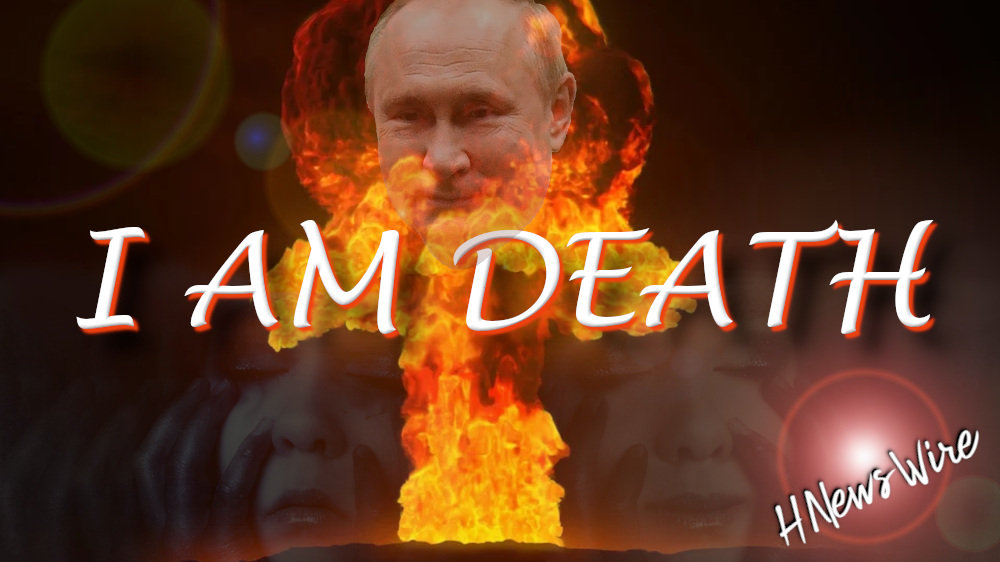
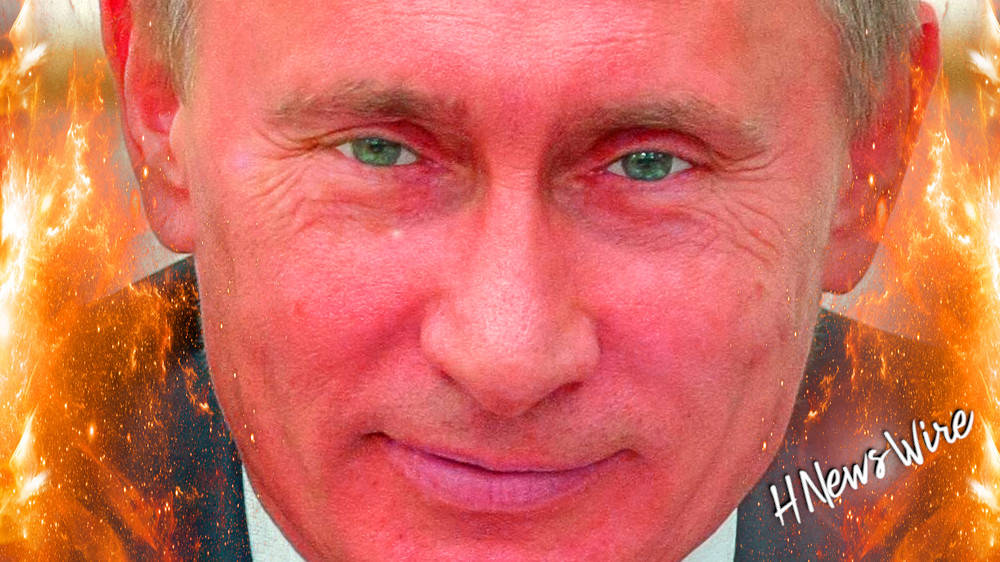
Newsletter
Orphans

Editor's Bio


